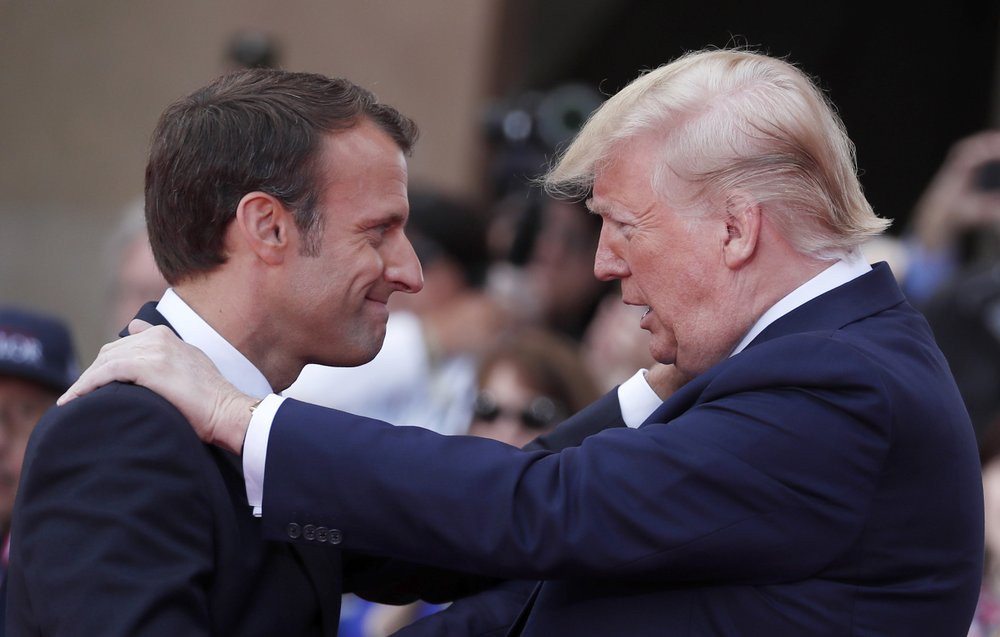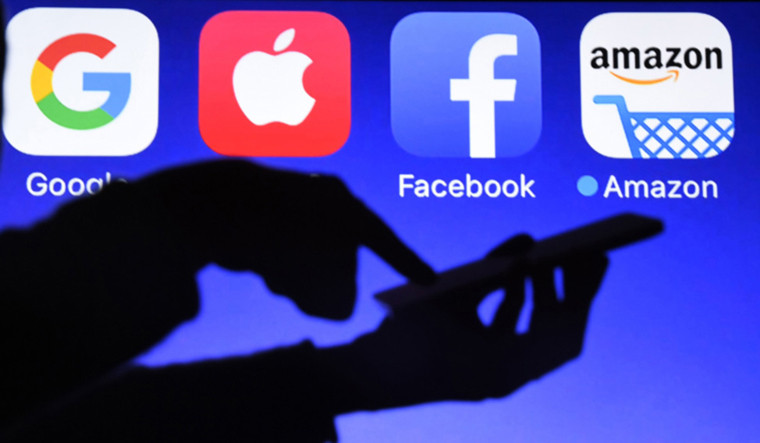US-France trade tensions: 'Why is this happening'?
(Baonghean.vn) - Tensions in the US-France alliance began to heat up again over the weekend, when President Donald Trump warned that he would impose taxes on French wine - Paris's main export.
This move is said to be in response to France's imposition of a tax earlier this month on a series of corporations and technology companies operating in the country, including many large American companies such as Google, Apple, Facebook and Amazon. Public opinion is asking, from the digital technology tax and now possibly the wine tax, "why is the US-France trade tension"?
 |
| The US-France alliance is facing many difficulties. Photo: AP |
Macron initiates - Trump fights!
It is not difficult to understand the latest move of US President Donald Trump when he announced that he would respond to France with a tax order targeting Parisian wine. With the policy of “America First”, demanding fairness with all partners, whether they are close allies or not, President Trump is proving to the world that America does not “leave out” anyone.
And so will France! In his statement, Mr. Trump emphasized that there will be appropriate responses. Earlier, White House Deputy Press Secretary Judd Deere also said that the US administration is considering options for measures against Paris, and that France is carrying out "unfair" and "discriminatory" tax measures against American companies.
If the Trump administration chooses to target wine, it would be a major blow to French exports, as the US is by far France’s largest wine export market. In 2018, French wine exports to the US accounted for about a quarter of the country’s total wine exports, or about $3.6 billion.
On the French side, according to calculations, the new tax law that this country applies will tax 3% on digital services of companies and corporations with a revenue of at least 750 million euros per year. This step is expected to add about 560 million USD/year to the budget revenue of this country.
But perhaps not simply for profit, France also had certain calculations when "risking" initiating trade tensions with its US ally.
Observers say that for many years, the French government has not been able to come up with feasible measures to deal with the fact that many American companies with huge revenues always avoid paying taxes in Europe, not just France.
 |
| A series of large American technology companies and corporations are affected by the French tax order. Photo: The Week |
Meanwhile, negotiations on imposing a common technology tax within the framework of the Organization for Economic Cooperation and Development (OECD) have also progressed very slowly.
It is understandable that the US is also a key member of this organization, and that agreeing to create a common mechanism for global technology taxation would not bring any benefits to Washington!
Therefore, despite the French President Emmanuel Macron's administration's assertion that it would withdraw the technology tax, if an international agreement on a common tax mechanism is reached by all member countries of the Organization for Economic Cooperation and Development (OECD) by the end of 2020, so far, there has been no sign of any improvement in the negotiations.
Even France's move to initiate the tax seems to be "counterproductive" as the US government is reacting strongly, considering this a move that causes bilateral trade tensions.
Who wins - who loses?
Public opinion must be wondering why, while some European countries such as Italy, the UK, Austria or Spain have also taken steps to impose taxes on technology services, only France has encountered strong reactions from the US.
It can be explained that, in the context of Germany being busy with the power transition, France - one of the two remaining locomotives of Europe - will certainly find it difficult to find a partner to join forces at this time.
In the context of the US-EU relationship also falling into tension when the US threatened to impose an additional tax of 4 billion USD on goods from Europe earlier this month, the warning to France is also another "psychological blow" to the whole region.
That Europe should not “risk” a trade confrontation with Washington, and the US will not make concessions in the process of negotiating a trade agreement between the two sides.
President Trump's psychological attack seems to be starting to take effect when in the latest statement, France made statements to "appease" the US. Accordingly, French Minister of Economy and Finance Bruno Le Maire affirmed that this country is not targeting US companies at all but only wants to reach an agreement with Washington on taxing technology giants at the G7 Summit at the end of August!
Not to mention, with his statement, Mr. Trump seems to have scored more points in the eyes of domestic technology voters who also have a lot of "antipathy" towards the leader of the United States. Because recently, people still see a President Trump with many statements criticizing and even threatening to sue corporations like Google or Facebook.
Therefore, changing his tone and protecting his "family" from outside partners shows that no matter what actions Mr. Trump takes, he does not forget the goal of scoring points and running for the presidency next year.
However, on the French side, this country is not completely at a disadvantage when recent information shows that President Macron has invited his Russian counterpart Vladimir Putin to visit France and have high-level talks on August 19.
The meeting is expected to be held at the President's summer resort on the Mediterranean coast, just days before France hosts the G7 summit.
 |
| French wine - the product that President Donald Trump is targeting to put pressure on President Emmanuel Macron's administration. Photo: AP |
And just before that, at the end of June, French Prime Minister Edouard Philippe also welcomed and held talks with his Russian counterpart Dmitry Medvedev.
This is the first high-ranking Russian leader to visit France since Russian President Putin's trip to Versailles, a suburb of Paris, in late May 2017.
Obviously, not only wanting to "restart the dynamic relationship and continue strategic dialogue with Russia" as President Macron declared in his capacity as Chair of the G7, the Paris government probably also wants to send a message to President Donald Trump that this country still has good relationships outside of its US ally.
Up to now, it is unclear whether the US government's warning about imposing wine taxes on France will become a reality or not. We only know that, until the G7 Summit takes place in France at the end of August, the parties will still have many moves to argue and put pressure on each other.
Because certainly, a series of issues such as the global technology service tax or the US tax orders on a series of European agricultural products... will continue to be hot topics that will be put on the negotiating table. And which side is forced to make concessions cannot have a precise answer!

